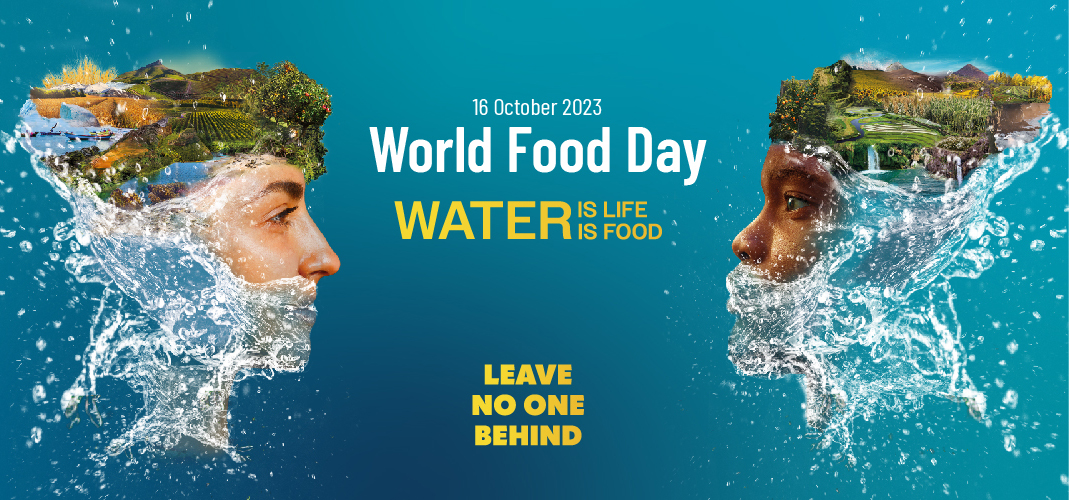World Food Day 2023

Food insecurity affects 1 out of 10 people all over the world. World Food Day, started by the Food and Agriculture Organization of the United Nations (FAO), is a day to bring awareness to world hunger and promote changes by bringing together governments, businesses, communities, and individuals to help the cause.
The slogan for this year’s World Food Day is “Water is life. Water is food. Leave no one behind.” Water is an essential resource to every single living organism on Earth. Whether it is a plant, animal, fungi, or human, they all need water to survive. We don’t only use water to nourish our bodies but to grow our food. However, despite being an essential resource, water scarcity is a phenomenon that over 2.4 billion people are dealing with, according to the FAO. Freshwater availability has decreased as climate change, pollution, and poor resource management have increased.
The FAO encourages everyone to step up and learn how to manage water wisely. In particular, they’re calling for academic institutions and farmers to research how agriculture can be part of the solution to managing our water, and that is precisely what the RIPE project is doing.
The RIPE project has been working on how crops can use photosynthesis more efficiently, and for a few researchers on the team, to figure out how crops can be more water-use efficient. Tracy Lawson and Andrew Leakey have been working to reduce water waste in the photosynthetic process, leading to less water waste in agriculture overall. The RIPE project hopes to help lessen water scarcity worldwide through this research.
Tracy Lawson, from the University of Essex, studies stomatal control. Her goal with her research is to understand how stomatal control works under certain circumstances and learn how to control stomatal changes to make crops use water more efficiently. Lawson is looking into how to speed up stomatal responses because stomata control how water enters and exits the plant. She wants to figure out how to control the stomata to lose less water on hot days so the crop can hold onto its water and need less. In turn, this will lead to less water required for agriculture and more water for drinking.
Andrew Leakey, from the University of Illinois Urbana-Champaign, is also working on how to make crops more water-use efficient. He describes water efficiency in plants as the ratio of photosynthesis to the plant's water usage. Leakey says water availability is one thing that limits crop production worldwide. He wants plants that can store water in the soil, called banking water, where the water will be readily available when needed.
Check the RIPE blog later this week for a more in-depth look at both Lawson and Leakey's work. RIPE is recognizing World Food Day, and this year’s theme, by featuring some of our research that could help make crops use water more efficiently, which would improve yields in areas where fresh water is a scarce resource.
RELATED RIPE OBJECTIVES
Mesophyll Conductance